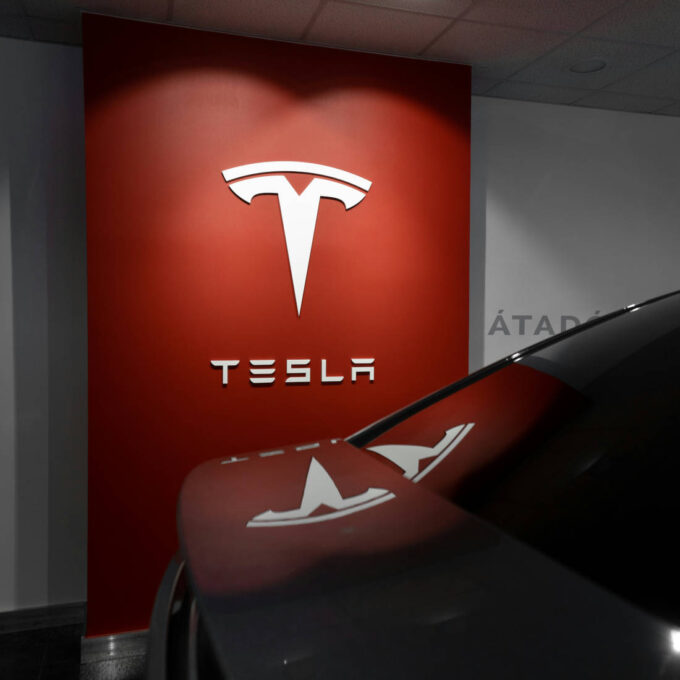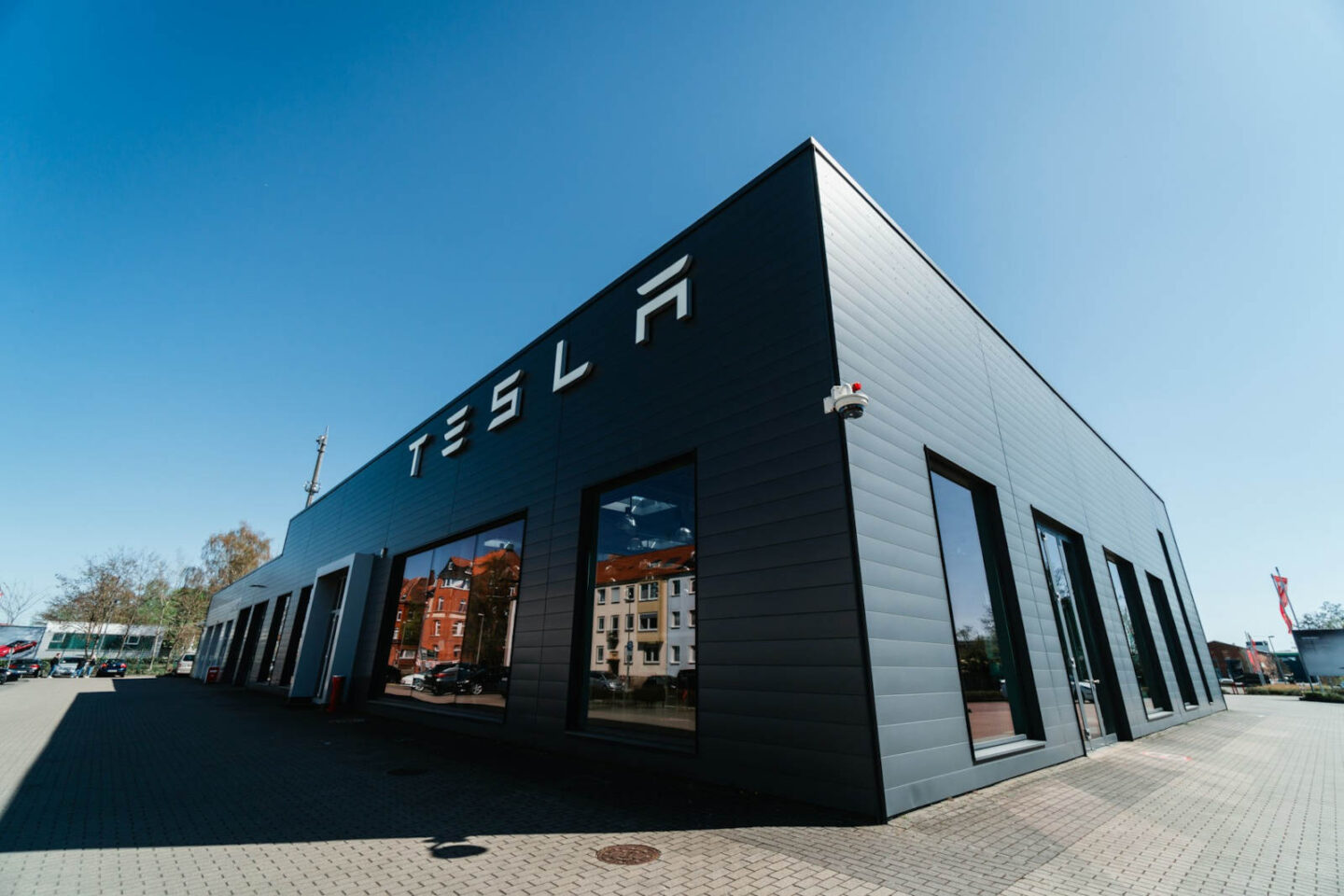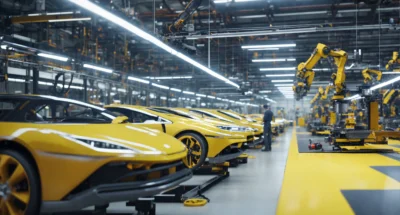
An electrifying performance: how BYD went above and BeYonD Tesla
BYD’s race to the top spot of IMD’s Future Readiness Indicator shows how keeping an eye on your core business while scaling up a few clear priorities is key to success, writes...
by Michael R. Wade Published April 19, 2024 in Strategy • 7 min read
For more than a decade, since 2012, I’ve proudly driven a Tesla, remaining loyal to billionaire Elon Musk’s electric car company. Despite considering alternatives, each time my Tesla is due for renewal, I find myself drawn back to the brand; this marks my third model. Tesla offered an unmatched experience for me: the longest range, great power and performance, green cred, a reasonable price, and a certain intangible cool factor. Yet, the Texas-based company is finding all these benefits under threat.
That reality was underscored this week when Tesla said it planned to cut 14,000 jobs worldwide — or more than 10% of its workforce — following a steep drop in first-quarter sales, reflecting a series of challenges converging on the company. Threats emerged from various fronts: the rise of cheaper Chinese brands igniting a price war, the polarizing persona of Musk, and a global slowdown in demand for electric vehicles (EVs).
Consequently, Tesla’s shares have plummeted by around a third so far this year, with its market capitalization slashed nearly in half from the company’s 2021 zenith, standing at $492bn today. That makes Tesla the second-worst performer in the S&P 500 index. By contrast, shares in Hyundai are up more than 20% year-to-date.
Tesla’s once-dominant competitive edge is eroding as legacy automakers intensify their focus on electrification. Industry giants like Volkswagen, General Motors, Ford, and Hyundai have aggressively entered the EV market, making substantial investments. However, unlike Tesla, they can fall back on sales of traditional petrol and diesel cars. Moreover, Tesla faces stiff competition from less expensive Chinese brands such as BYD and Nio, creating a dual-front battle.
In response to mounting pressure, Tesla has resorted to repeated price cuts, slashing the prices of its Model S sedan and the Model X sport utility vehicle (SUV) twice early last year by some $23,000 on average. However, while this aims to mitigate the impact of higher borrowing costs on consumers, the cuts are diminishing the resale value of existing Tesla vehicles, leading to higher monthly payments for customers. That may well see some jump ship to other EV brands.
In any case, this price-cutting strategy has failed to prevent a slump in Tesla’s sales. In the first quarter of this year, the firm delivered 386,810 electric cars, down 20% from the previous quarter and 8% from the same period last year. Factory disruptions caused by issues in the Red Sea and an arson attack in Germany have compounded Tesla’s challenges, exacerbating its struggles in key markets like the US, the EU, and China.
“Tesla has diverted resources into products with a seemingly niche appeal, like the Roadster ultrafast sports car and the Cybertruck off-roader, despite reporting sharp falls in sales.”
Moreover, Tesla’s vehicle lineup is aging, with the older Model S and Model X — launched in 2012 and 2015, respectively — falling out of favor with consumers despite repeated price cuts. Musk has acknowledged some cannibalization from newer products like the Model 3 sedan and Model Y, an SUV, which together account for 90% of Tesla’s sales today.
Attempts to upgrade the Model S and X to give them a new lease on life have fallen short. In 2021, Tesla introduced a yoke (Formula 1-style) steering system for both models, but they proved unpopular; the vehicles slid in consumer rankings. Tesla then offered customers who had buyer’s remorse the chance to retrofit traditional round steering wheels, albeit for $700.
Recognizing the urgency for upgrades across its product lineup, Tesla has planned updates to its best-seller, the Model Y, codenamed “Project Juniper.” It will need to ensure those refreshments go better than the S and X, vehicles that may well be consigned to the history books soon.
That is made all the more important because Tesla has diverted resources into products with a seemingly niche appeal, like the Roadster ultrafast sports car and the Cybertruck off-roader, despite reporting sharp falls in sales.
Additionally, the reported abandonment of plans for a low-cost “Model 2” vehicle and a shift toward developing a self-driving “robotaxi” has further muddled Tesla’s strategic direction.

The company appears to be grappling with an identity crisis. Is it primarily a luxury car manufacturer, a comprehensive transportation company, or perhaps a leader in battery technology?
Tesla is seeking to disrupt the car battery market, which has long been dominated by Panasonic and LG Energy, and, more recently, by Chinese suppliers CATL and BYD. Tesla’s innovative cylindrical 4680 battery cells offer up to five times more energy than conventional batteries and are cheaper to produce.
Another concern is whether Tesla truly strives to be an environmental frontrunner, as some advocates claim it is. However, the launch of the Cybertruck, its most resource-intensive vehicle, casts doubt on this dedication. Despite the environmental advantages of EVs over traditional pickup trucks, the Cybertruck’s production demands significant energy and resources, including significant amounts of aluminum and other materials hauled out of mines.
It’s noteworthy that activist group Vulkan claimed responsibility for the arson attack in Germany that contributed to Tesla’s poor first-quarter results. Vulkan argued Tesla’s plant in Berlin was depleting environmental resources and human labor.
This highlights that, without a clear commitment to a defined path, Tesla risks perplexing its potential customers. Achieving strategic clarity is imperative for the company’s success moving forward.
The sales slowdown has been felt across the auto industry, forcing car companies to slash costs and jobs.
That will only exacerbate scrutiny of Musk’s leadership. Once hailed as a visionary, injecting new energy into a stagnant industry and challenging the status quo, his eccentric persona and perceived alignment with right-wing ideologies have cast shadows over his reliability and trustworthiness. Musk has expressed views deemed insensitive or racially charged on X, the social media platform he bought for $44bn and runs alongside Tesla and his other ventures.
Yet, amid these challenges, Tesla does possess some key advantages that it can leverage over rivals. It owns major infrastructure, including the main EV charging grid in the US. The business also remains on a sound financial footing; by year-end 2023, Tesla had hauled $29bn in cash and cash equivalents.
Tesla’s software-centric approach, demonstrated during the semiconductor crisis of 2022 — when it rewrote software to optimize its limited chip supply, keeping production humming while rivals temporarily shut factories — also gives it an edge over competitors.
Considering these strengths, one option for Tesla could be to strategically pivot towards becoming a platform provider for the broader EV industry. By offering charging infrastructure and battery technology, Tesla could position itself as a leading service provider within the EV ecosystem.
However, it’s worth mentioning that other companies are scaling back their EV ambitions. For instance, Apple recently abandoned its electric car effort, called “Project Titan,” signaling uncertainty about the future trajectory of the EV market. The sales slowdown has been felt across the auto industry, forcing car companies to slash costs and jobs.

“Yet, amid these challenges, Tesla does possess some key advantages that it can leverage over rivals.”
Despite these challenges, there’s reason for cautious optimism. The EV market is just following the typical “bell curve” of adoption seen with new innovations. Early adopters have paved the way, and now the focus shifts toward capturing the early majority, representing approximately 33% of consumers in any market, who are influenced by advertising and social proof.
Transitioning from early adopters to the mass market presents a significant challenge for the entire auto industry, with EVs accounting for around 14% of all new car sales currently, up from 9% in 2021.
Effective marketing campaigns will be crucial in persuading the early majority to embrace EVs. Interestingly, Tesla has relied on product quality and innovation, eschewing traditional mass-market advertising and cultivating a kind of mythology around the brand. “Tesla does not advertise or pay for endorsements. Instead, we use that money to make the product great,” Musk once said.
However, to bridge the gap between early adopters and the broader mass market, Tesla will need to reassess its marketing approach and invest more in persuasive messaging and social proof. If it can pull that off, rein in Musk’s polarizing persona, update its aging line-up, and clarify its strategic direction, Tesla can continue to lead the charge in the electrification of transportation.

TONOMUS Professor of Strategy and Digital
Michael R Wade is TONOMUS Professor of Strategy and Digital at IMD and Director of the TONOMUS Global Center for Digital and AI Transformation. He directs a number of open programs such as Leading Digital and AI Transformation, Digital Transformation for Boards, Leading Digital Execution, Digital Transformation Sprint, Digital Transformation in Practice, Business Creativity and Innovation Sprint. He has written 10 books, hundreds of articles, and hosted popular management podcasts including Mike & Amit Talk Tech. In 2021, he was inducted into the Swiss Digital Shapers Hall of Fame.

June 12, 2025 • by Howard H. Yu in Electric Cars
BYD’s race to the top spot of IMD’s Future Readiness Indicator shows how keeping an eye on your core business while scaling up a few clear priorities is key to success, writes...

January 22, 2025 • by Patrick Reinmoeller in Electric Cars
In the face of growing competition from BYD and Tesla, Honda and Nissan's large merger wager may not be sufficient to bridge the gap. Thinking outside of the box may be essential...

July 26, 2024 • by Jerry Davis in Electric Cars
The rise of electric vehicles – and a flood of new, small market entrants – is transforming the nuts and bolts of car making. Does this shift finally spell the end for...

July 17, 2024 • by Mark J. Greeven, Sophie Liu in Electric Cars
The market share of Chinese independent brands has risen from 35.8% in 2020 to 56.1% in the first five months of 2024. Read on to see which are succeeding and how they...
Explore first person business intelligence from top minds curated for a global executive audience